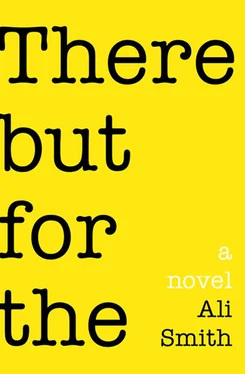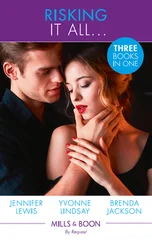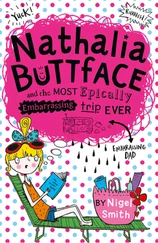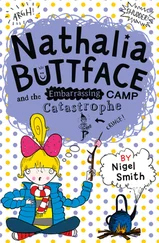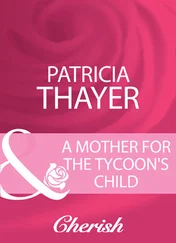Oh, that’s good, the boy is saying. That’s really subversive. Subversive sleeping beauty. I mean how would you wake her? Kissing her won’t do it.
It isn’t a line; he isn’t being flirtatious. He actually looks pre-occupied.
He is very witty, and definitely clever; he is probably one of the ones on this trip who are going to Oxford or wherever it is they’re all going. But he doesn’t sound rich or like he goes to a posh school. Also, he has already made her really laugh. She wants to ask whether he knows anything about the people who shaved off the boy’s half-moustache. He doesn’t seem like he’d be the kind to do that sort of thing.
He is dark-haired, big-nosed. He’d be good-looking if it wasn’t for his nose. He looks the quiet type. Maybe he looks more the quiet type than he actually is. He looks a bit tired this close up. His hair is longish, not too long. He is wearing a blue vest-top. He’s quite broad-chested. His arms and shoulders come out of the vest-top gangly and pale, like he doesn’t fit himself. But the way he moves just then, to flick a little greenfly or something off the leg of his jeans, is both gentle and exact.
She stops looking at him because he starts looking at her.
What are you doing? he says then.
She shrugs, nods at the Timetable on the top of her Tour folder.
Waiting for whatever it is we’re supposed to be doing next on the list, she says.
No, I mean, what are you doing with that, he says.
He is pointing at her head, at her ear. While they’ve been talking she has unbent the paperclip from the Useful Information sheets in the folder and, without really thinking about it, has been poking its end into her ear piercing.
Oh, she says. Making an earring.
Out of a paperclip? he says.
I only brought one earring with me. I mean from home, she says. I don’t want the hole to close up.
When people do that on TV in dramas, like unravel a hairpin or a paperclip, it’s because they’re going to unpick a lock or something, he says. But then you stuck it into your earlobe. That’s so 1976.
I’m so. Twentieth century, she says.
It’s probably still really new wave, to do that in France, he says. No, I mean, probably still really nouvelle vague. Hey, listen. If your second name was Key—
She looks sideways at him.
You’d be Anna Key in the UK, he says.
He is laughing at her now.
Then she is laughing too, at herself.
Wish I was in the UK right now, she says.
Your earrings really mean that much to you? he says. Wow. No, I like it here. I like places of disrupted history that have managed, all the same, to come out of things looking pretty good. I’m enjoying all the tourifications. But you. You’d rather be there than here.
Anna nods.
You’re not having a good time, he says.
Anna looks away from him, looks at the water.
Well, he says. You could. Just go. Just go home.
Yeah, right, Anna says. Well, I would if I had my passport. I’d like to at least have the choice.
Let’s see it, he says.
What? she says.
Your passport, he says.
They took them, Anna says. They took mine. Did they not take yours?
Come on, he says. Here to help. Show me your passport and I’ll help you cross the border.
He puts on a stern face, points at the french bread sticking out of her packed lunch bag, holds out his hand.
You want this? she says.
Passaporte, he says. I’ve eaten mine.
You’re being such a tube, she says.
But she hands him the bread.
Right, he says. Come on.
He stands up.
Where? Anna says.
Fishing, he says.
They spend the afternoon throwing bits of bread at the water and watching for the mouths of the fish to appear, to open and close as if detached from any actual fish-bodies, at the surface. On the way back to Paris, when everybody crowds scrumming for seats on to the bus, he catches the edge of her jacket in his hand when she passes his table. He moves over into the empty seat next to him. She sits down.
This is Anna Key, he tells the two other people sitting at the table. Anna Key in the UK, and Anna Key when she’s not in the UK too.
This time on the bus when she gets her book out of her bag, it isn’t because she feels bad. Everybody talks round her all the way back to Paris like she belongs, like she’s never not been there. She even joins in with a couple of the conversations.
In her room in the hotel, before supper, she sits on the bed and takes the list of prizewinners’ names out of the information folder. There is only one Miles. Miles Garth. Next to his name is the word Reading. It is the place he’s from.
There was once, and there was only once; once was all there was.
She wonders if that was really his first line. She wishes she’d asked him how the rest of it went. She tells herself to remember to ask him the next time they speak.
That evening, when she comes down to dinner in the hotel, some of the same people she sat next to on the bus ride back have kept her a seat. She makes friends with a girl who didn’t seem shy but, she finds, is quite shy, and who, it turns out, is from Newcastle. They both talk about nothing for a while, then nod at each other in the knowledge that they can now safely hang out with one another whenever they need to for the ten days left. Meanwhile the boy, Miles, is across the other side of the hotel dining room, standing chatting at the staff table. She sees, from this distance, how it’s as if there is a kind of agreeableness in the air round him. She watches how he and the people sitting near him at that table all laugh at something someone’s said. She bets herself it was him who said it, the funny thing.
After dinner she is waiting in the queue for the freaky, creaky old hotel lift with the dangerous metal door when out of nowhere he’s beside her, leaning on her shoulder very lightly.
I went between, his voice at her ear says.
Eh? she says.
I penetrated to the heart of the machine so as to appropriate the machine, he says.
Eh? she says again.
Eh is for Abba, he says. B is for Banshees. C is for covert criminal activity.
He holds something up. It’s a passport. It’s open at the photo page. The photo is of her.
I penetrated to the heart of the forest, he says, sacrificed myself, and brought back — you.
He hands her her own passport. He smiles. He nods just once.
There you are, he says.)
Now, thirty years later, walking down a road in Greenwich in London with a small girl skipping ahead of her, this is what Anna remembered, all at once, of that gone time: the particular smell, like wood polish, in the house and in the clothes of her old schoolfriend, Douglas; the way that the lift door in a hotel she’d once stayed in, in the city of Paris, on that European tour, wasn’t a real door, was just a gold-coloured concertina-like iron grille through which you could see the concrete between the floors as you went up; a certain raw combination of hope and disaffection; a knowledge as vivid as an actual taste in her mouth, of what the time she’d been alive in had felt like; and clear as anything a voice, and the words: there you are.
She was walking along a road she didn’t know, carrying two jackets. One was hers. The other was stylish, expensive, covetable, light in the cloth, bulky at the pocket. She put her hand inside the jacket pocket and felt Miles Garth’s mobile and wallet in there.
In the middle of the night, not long after she’d left her job, she’d sat in front of a Marx Brothers film which happened to be playing on TV. In it Harpo was unexpectedly old. Some violent henchmen who were looking for a diamond necklace hidden in a tin of tuna held the ageing Harpo against the wall and searched him, emptying the pockets of his old coat out into the room behind them. The pockets went unthinkably deep; among all the junk the henchmen pulled out and piled up behind them were a coffee pot, milk jug and sugar bowl, a car tyre, a hurdy-gurdy music box, a sledge, a couple of prosthetic limbs and a small dog which shook itself to get its dignity back before it padded off across the room. A henchman slapped Harpo very hard across the face. Harpo was a genius. He smiled a delighted smile and slapped the henchman back. The real joke was that the henchmen were determined to make Harpo Marx, of all the people in the world, talk. They tried to do this by torturing him. But every horrible thing they did to him seemed only to please him more.
Читать дальше
